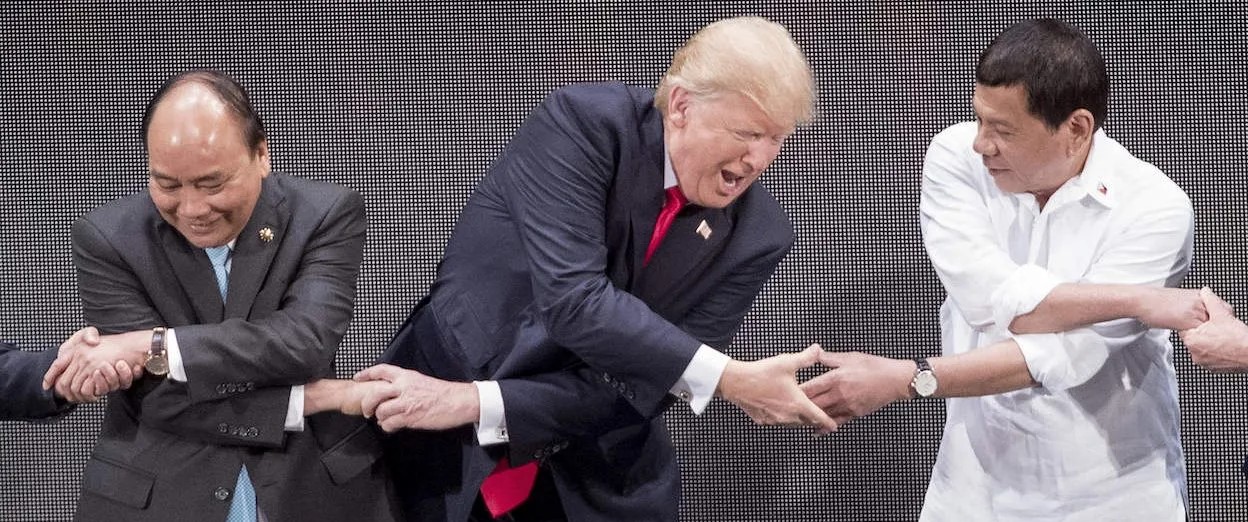(4 Minutes Read)
As Donald Trump is returning to the Oval Office, analysts are pondering over the future of multilateral organizations like the United Nations and its allied bodies. Should Trump change his earlier stand that the 193-member UN is a club for people from different countries to get together and spend time at public expense?
As Donald Trump is returning to the Oval Office, analysts are pondering over the future of multilateral organizations like the United Nations and its allied bodies. Should Trump change his earlier stand that the 193-member UN is a club for people from different countries to get together and spend time at public expense?
From climate activists to trade negotiators are now discussing the possibility of a change of mind for the President-elect, who is known for his stubbornness and intemperate utterances on the UN as evidenced in his first term. Even among the NATO partners, who are the US’s closest allies, closed-door discussions are underway as to what his plans are and how they will be executed. Clarity on these points may take a little more time.
There are certain pointers though that indicate broad plans that will be unveiled. Most of the key advisors randomly picked up and speculated to join his team are America First hardliners who do not mince any words about the radical transformation that is needed, come whatever may. Yet, the unpredictive Trump can run roughshod over his decisions to the extent his detractors often say he is whimsical to the core. Will that mindset continue is the moot question being asked from many quarters including his hardcore supporters and detractors alike?
There are certain prioritized agendas the Trump Administration may follow. Beyond the ongoing conflicts in Ukraine and Gaza, there are issues like climate change, trade facilitation efforts, running of the UN organizations, and their funding which have to be addressed. Trump’s approaches towards WTO, WHO, etc are well known and they may not be as passive as what happened during the Biden era. Significantly, soon there will be a contest to elect the chief of WTO and the incumbent has already pitched up her candidacy for another term. Will the Trump Administration allow that to happen, going by his well-orchestrated stand during the previous term?
One of the first stands taken during the previous term of Trump was about the carbon credit and the withdrawal of the backing of his administration. His approach was Paris Climate Agreement was flawed, protected polluters, and hurt American interests. To him, climate change is a fabricated holocaust by the Chinese to make US manufacturing uncompetitive and to steal US money. Will there be any change of mind in his second term?
In his first term, Trump suspended funding for the U.N. health and family planning agencies, withdrew from its cultural organization and top human rights body, and jacked up tariffs on China and even longtime U.S. allies by flaunting the World Trade Organization’s rulebook. The United States is the biggest single donor to the United Nations, paying 22% of its regular budget.
Trump also had the U.S. leave the cultural and educational agency UNESCO and the U.N.-backed Human Rights Council, claiming they were biased against Israel. Biden went back to both before recently opting not to seek a second consecutive term on the council. Trump cut funding for the U.N. population agency for reproductive health services, claiming it was funding abortions. UNFPA says it doesn’t take a position on abortion rights, and the U.S. rejoined.
The critics maintain Trump had no interest in multilateralism — countries working together to address global challenges — in his first term, which for many is the cornerstone of the United Nations.
Read Also:
Will Trump’s second term necessarily resemble the first? Let us hope that it will not be so since the world is increasingly becoming multi-polar. One will be able to assess that when Trump assumes office in January 2025 and steers the country as the commander in chief since then to complete his second term. His supporters believe that it will be momentous for America and its people. Can the US prosper in isolation: is the counter by his antagonists.





